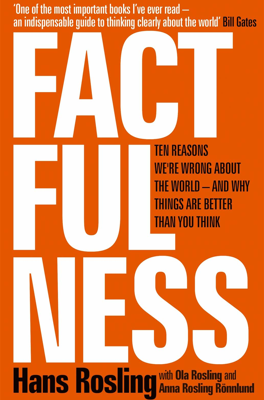The Size Instinct
Hans Rosling addresses the size instinct: our tendency to misjudge the importance of singular, often large, numbers without proper context. He illustrates this with personal experiences in Mozambique, where his medical decisions had to reflect not only those children he could see but also the invisible majority who could not reach the hospital. By focusing less on individually dramatic cases and more on widespread preventative measures, resources could be used more efficiently to save more lives.
Misjudging Proportions in Media and Perceptions
Rosling asserts that media often exaggerates isolated cases, making them seem more frequent or severe than they are, thus distorting our perception of scale and importance. For example, rare events like bear attacks get extensive coverage compared to more common yet equally tragic events such as domestic violence, skewing public focus and concern disproportionately.
Comparative and Contextual Understanding
To counteract this instinct, Rosling recommends always comparing and dividing numbers to understand proportions better. He emphasizes the importance of looking at numbers in relation to others to avoid being misled by their isolated impact. For instance, the decrease in infant mortality over decades becomes apparent only when current figures are compared with historical data, showing a significant drop from 15% to 3% in child mortality rates.
Practical Application of Numerical Comparisons
Applying the 80/20 rule, Rosling advises focusing on the most significant numbers that likely represent the majority of the issue. He also suggests dividing large numbers by relevant totals to get a rate or a ratio that offers a more meaningful perspective. For instance, dividing total CO2 emissions by population gives a more accurate picture of environmental impact per capita, rather than looking at aggregate emissions by country.
Global Demographic Shifts
Rosling also discusses the importance of understanding global population distribution changes, predicting major demographic shifts from the Atlantic to Asia and Africa. Recognizing that Asia and Africa will dominate future global populations and markets is crucial for correct strategic planning in politics and business.
Through these examples and strategies, Rosling champions a fact-based understanding that resists the distraction of overly dramatic single data points, urging a focus on broader data trends and comparisons that lead to more effective and efficient decisions.
